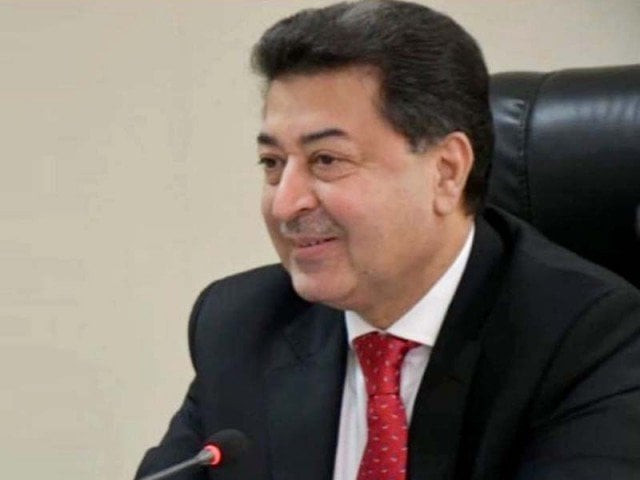IHC ‘judicial restraint’ paves way for ECP appointments
CJ Gulzar Ahmed will administer oath to Sikandar Sultan Raja as CEC

Raja Sikandar Sultan. PHOTO: EXPRESS
According to ECP spokesperson Altaf Khan, Chief Justice of Pakistan Gulzar Ahmed will administer the oath to Sikandar Sultan Raja as CEC at a ceremony to be held at the Supreme Court building.
Later, the chief election commissioner will administer oath to Nisar Durrani and Shah Mohammad Jatoi as ECP members from Sindh and Balochistan, respectively.
The appointments will take place almost after a year of controversy and legal interventions.
As the treasury and the opposition were in a fix over the issue, the IHC CJ had directed both to refer the matter to the parliament instead of asking the court to decide and said it exercised restraint on the matter.
Justice Minallah noted, “It is for the above reasons that this Court has exercised restraint in deciding these petitions and the matter was referred to the Speaker National Assembly and Chairman Senate. The leaders of the House and opposition in the National Assembly owe it to the people of Pakistan to rise to the occasion and ensure that the dignity, sanctity and supremacy of the Majlis-e-Shoora (Parliament) is not undermined,” read the court order.
After the judicial intervention, the differences between federal government and opposition finally resolved on January 21, 2019.
However, the case of ECP officials’ appointment is still pending in the IHC.
Last year on August 22, President Arif Alvi had appointed Khalid Mehmood Siddiqui from Sindh and Munir Ahmed Kakar from Balochistan to fill the positions that fell vacant after the departure of Abdul Ghaffar Soomro and retired Justice Shakeel Baloch from the respective provinces.
However, the ECP chairman refused to administer the oath to them on the ground that the appointments were made without fulfilling the constitutional requirements.
On September 3, two members of the Parliamentary Committee on Appointment of Chief Election Commissioner and Members of the Election Commission of Pakistan — Nisar Ahmed Cheema and Murtaza Javed Abbasi — as well as Barrister Jahangir Khan Jadoon challenged the presidential order, arguing that the appointments were unconstitutional.
The ECP in its written reply endorsed the petitioners’ contentions that President Alvi made the appointments “in violation of clauses 2A and 2B of Article 213 of the Constitution”.
At a previous hearing on October 14, the IHC observed that the provisions of the “Constitution ought to be respected and implemented in letter and spirit because Article 5 explicitly provides that obedience of the Constitution... The abrogation, subversion, suspension and holding in abeyance of the Constitution or any attempt or conspiracy in this regard through any unconstitutional means has been made punishable under Article 6 [high treason]”.
Eight hearings of the case have been held with the government likely to submit the implementation report in the court on January 27 (today).
Commenting on the “judicial restraint”, Pakistan Bar Council former vice chairman Kamran Murtaza, while talking to The Express Tribune said it was good to see institutions working within their boundaries.
Senior advocate Adnan Haider Randhawa said judicial restraint in political matters or matters with political consequences was an established norm in democracies all over the world.
Lauding the IHC for “judicial restraint”, the senior advocate maintained that appointments made on the directions of judiciary were in all likelihood to draw controversy with respect to rigging allegations in future elections.
Supreme Court Senior Advocate Hashmat Habib noted that it was the routine of courts that such issues of political nature were sent to the parliament.



















COMMENTS
Comments are moderated and generally will be posted if they are on-topic and not abusive.
For more information, please see our Comments FAQ